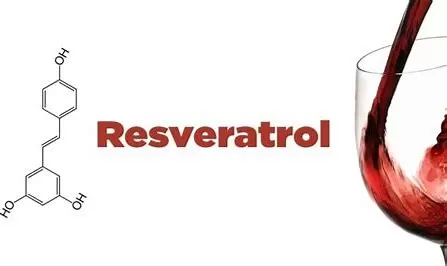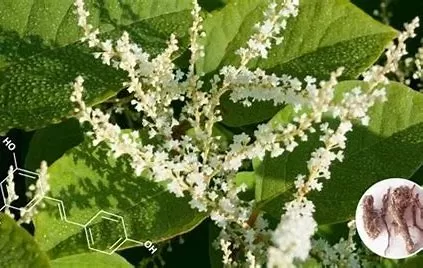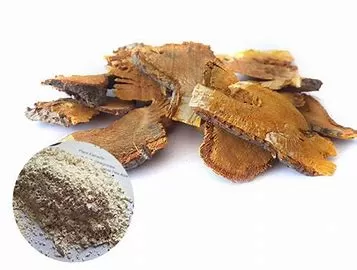- 0086-571-85302990
- sales@greenskybio.com
Role of Resveratrol: Who Might Benefit from This Natural Compound?
2025-04-25
In recent years, the interest in resveratrol has grown significantly within the health and wellness community. This natural compound, found in the skin of grapes, berries, and peanuts, has garnered attention due to its potential health benefits. Resveratrol is a type of polyphenol known for its antioxidant properties, which have been studied for their roles in promoting heart health, reducing inflammation, and extending lifespan. This article delves into who might benefit most from resveratrol supplementation and how this compound can play an integral part in various health contexts.
Understanding Resveratrol
Resveratrol is part of a group of compounds called polyphenols, which are thought to act like antioxidants, protecting the body against damage that can put you at higher risk for illnesses such as cancer and heart disease. In plants, resveratrol acts as a phytoalexin, a substance produced to protect against infection and environmental stress. The grapevine, in particular, is known for high levels of resveratrol, explaining its presence in red wine—a traditional source of this compound.
Who Might Benefit from Resveratrol?
1. Individuals with Cardiovascular Concerns: Resveratrol has been extensively studied for its cardiovascular benefits. It's thought to support heart health by lowering bad LDL cholesterol, preventing damage to blood vessels, and reducing inflammation. Those at risk of heart disease or those seeking to maintain cardiovascular health might find resveratrol supplementation beneficial. Its role in promoting nitric oxide production is essential for vascular functions, suggesting resveratrol can aid in maintaining blood pressure levels and improving circulation.
2. People with Inflammatory Conditions: Chronic inflammation is implicated in numerous health issues, ranging from arthritis to metabolic syndrome. Resveratrol's anti-inflammatory properties can potentially help manage such conditions. It interferes with inflammatory processes at the molecular level by inhibiting various enzymes and pathways. Patients with disorders characterized by inflammation might benefit notably from resveratrol's ability to mitigate these processes and provide relief.
3. Individuals Aiming for Longevity and Anti-Aging: There's intrigue around resveratrol's role in extending lifespan, primarily based on some promising results in animal studies. Resveratrol is thought to activate certain genes known as sirtuins, which are linked to longevity. For those interested in delaying the effects of aging or seeking longevity-promoting interventions, resveratrol supplementation may offer some potential advantages, especially when combined with other healthy lifestyle practices.
4. Metabolic Health Enthusiasts: Studies suggest that resveratrol can have beneficial effects on insulin sensitivity, making it of interest to those managing type 2 diabetes or prediabetes. By improving the body's sensitivity to insulin, resveratrol may help regulate blood sugar levels and thus support metabolic health. Individuals with metabolic syndrome or those at risk of developing diabetes might consider the potential benefits of integrating resveratrol into their regimen.
5. Neuroprotective Seekers: Ongoing research is investigating the neuroprotective properties of resveratrol, particularly its ability to cross the blood-brain barrier and its potential role in preventing neurodegenerative diseases. This has led to interest from those concerned about conditions like Alzheimer's disease and other cognitive decline-related issues. The antioxidant properties of resveratrol might help prevent neurodegeneration by neutralizing harmful free radicals in the brain.
Sources and Supplementation
Resveratrol can be obtained through dietary sources such as red wine, grapes (especially the skin), berries, and peanuts. However, the amount of resveratrol in these foods is relatively low. This has led to the development of concentrated resveratrol supplements, which provide higher doses.
Before beginning any supplementation, it is crucial to consult with healthcare professionals. They can provide guidance tailored to individual health needs and potential interactions with medications. Understanding the appropriate dosage and ensuring it aligns with one's health profile is essential to maximizing benefits and minimizing risks.
Considerations and Potential Side Effects
While resveratrol is generally considered safe, it can interact with certain medications, such as blood thinners, due to its potential to thin blood. High doses might lead to gastrointestinal issues or affect liver enzymes. These aspects underscore the importance of professional medical advice when using resveratrol, particularly for individuals with existing health conditions or those taking other medications.
Moreover, given the limited research conducted directly on humans, much of the current evidence supporting resveratrol's benefits stems from animal studies. Further research is needed to fully understand its efficacy and potential health benefits in humans.
Conclusion
Resveratrol emerges as a promising compound with a myriad of potential health benefits, primarily due to its antioxidant and anti-inflammatory properties. It offers potential advantages for individuals concerned with cardiovascular health, chronic inflammation, aging, metabolic disorders, and neuroprotection. However, as with any supplement, it should be considered carefully and used in consultation with healthcare professionals.
As scientific exploration continues, resveratrol's full scope of benefits will become clearer, potentially cementing its role as a staple in preventive health strategies. For now, its integration into a balanced diet and healthy lifestyle can serve as a proactive step toward maintaining well-being and reducing the risk of certain health conditions.
-
Is resveratrol safe for the liver?
2025-04-25
-
Does Coffee Contain Resveratrol?
2025-04-25
-
What fruit is highest in resveratrol?
2025-04-25
-
Is resveratrol safe for kidneys?
2025-04-25














